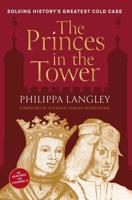Publisher's Synopsis
Written by a geologist rather than an art historian, Inigo's Stones has a down to earth narrative which reveals Inigo Jones as a stone expert who dealt with masons to became a shrewd businessman, bringing Portland stones to London, and founding the modern Portland stone industry. Why are so many of London's famous buildings, for example Buckingham Palace, the British Museum, the Bank of England, the government offices in Whitehall, faced with stones from the Isle of Portland, more than a hundred miles away? Until now the reasons that prompted famous architect Inigo Jones to bring blocks of this creamy limestone all the way by sea from the Royal Manor of Portland and thereby found the modern Portland stone industry had been something of a mystery. Working with archival research specialist James Derriman, geologist Tom Williamson has now reconstructed a scenario that solves the mystery. It is a complex tale that involves the marriage of Inigo's chief Banqueting House mason Nicholas Stone to the daughter of the City Mason of booming Amsterdam, a nasty incident at the stone-loading pier at Portland and Inigo Jones's struggles to pay stone workers from King James's bankrupt Treasury. The new findings presented in Inigo's Stones also see Inigo Jones studying Roman stones and marbles in Italy with Lord and Lady Arundel, initiating the first geological study of Stonehenge, searching for Portland stones big enough to replicate the Carystian marble monoliths of the Roman temple of Antoninus and Faustina in London and procuring Irish marbles to reflect imperial glory on his friend King Charles I. Inigo emerges not just as a Court propagandist and Vitruvian architect, but also as a resourceful businessman doing his best to cope at a time when the government was even shorter of cash than it is today. Reflecting on the questions raised by Inigo's work for the Stuart kings, the author Tom Williamson extends the story to cover the whole field of how rulers have used stones and marbles to project imperial power. Focusing on the stones of three once-mighty empires, the Roman, the Mughal and the British, the book ends with a surprising twist.








